Uplifting Moments in Sports

Uplifting Moments in Sports
Greg Louganis
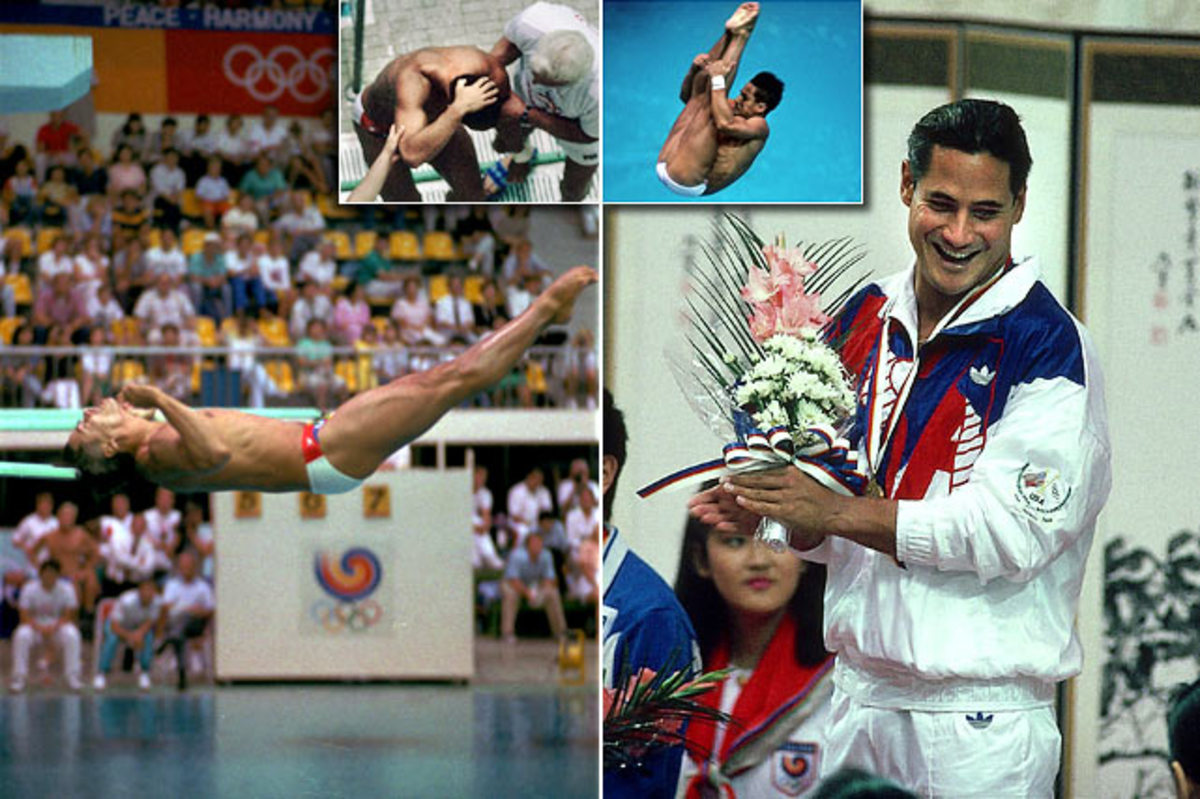
25 years ago, Greg Louganis suffered a concussion after hitting his head on the diving board while attempting a reverse 2 1/2 pike at the Seoul Olympics on Sept. 19, 1988. After receiving four stitches, Louganis found himself once again on the board, diving for the gold medal. Fearlessly, Louganis attempted the reverse 2 1/2 pike again, and nailed it en route to a gold medal.
Anthony Robles
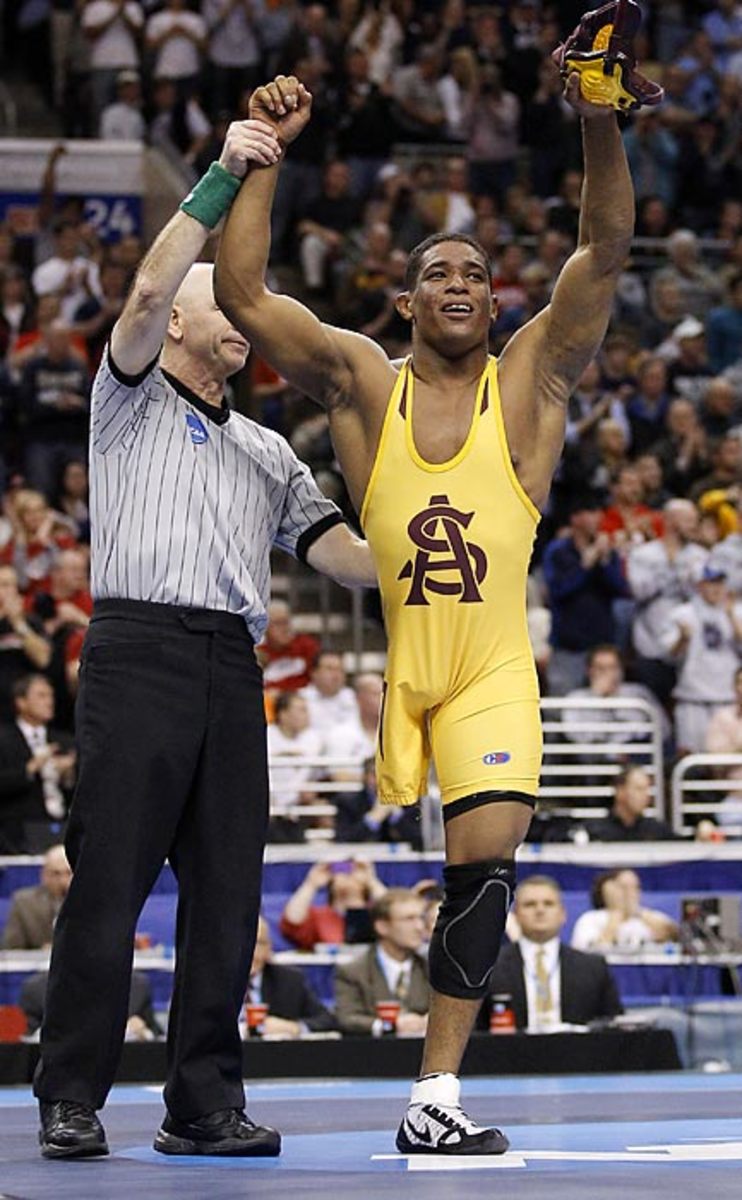
Although he was born without a right leg, Anthony Robles didn't let that stop him from dreaming and achieving his goals. The Arizona State senior won the national title at 125 pounds on March 19, 2011, capping an amazing 36-0 season.
Jim Valvano
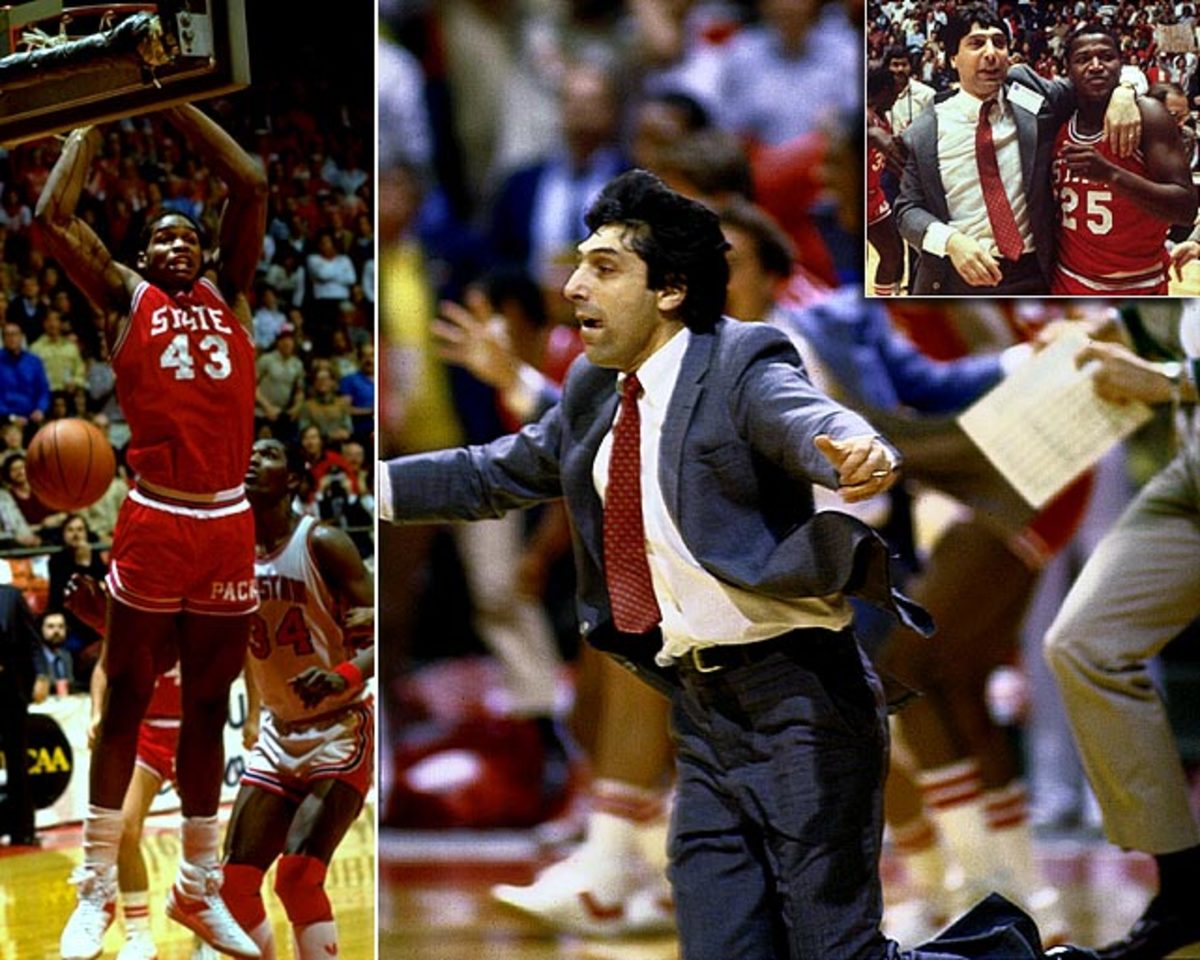
Jim Valvano lived his life by the simple mantra, "don't give up; don't ever give up." It was a mantra he preached to his N.C. State basketball team in the closing seconds of the 1983 NCAA finals, and it was a mantra he lived by during his battle with bone cancer in the early `90s. The '83 Wolfpack were able to overcome insurmountable odds, beating a top-seeded Houston team on a last-second shot, but Valvano succumbed to cancer after a yearlong battle. His legacy of courage and perseverance, however, are immortal.
Sarah Tucholsky
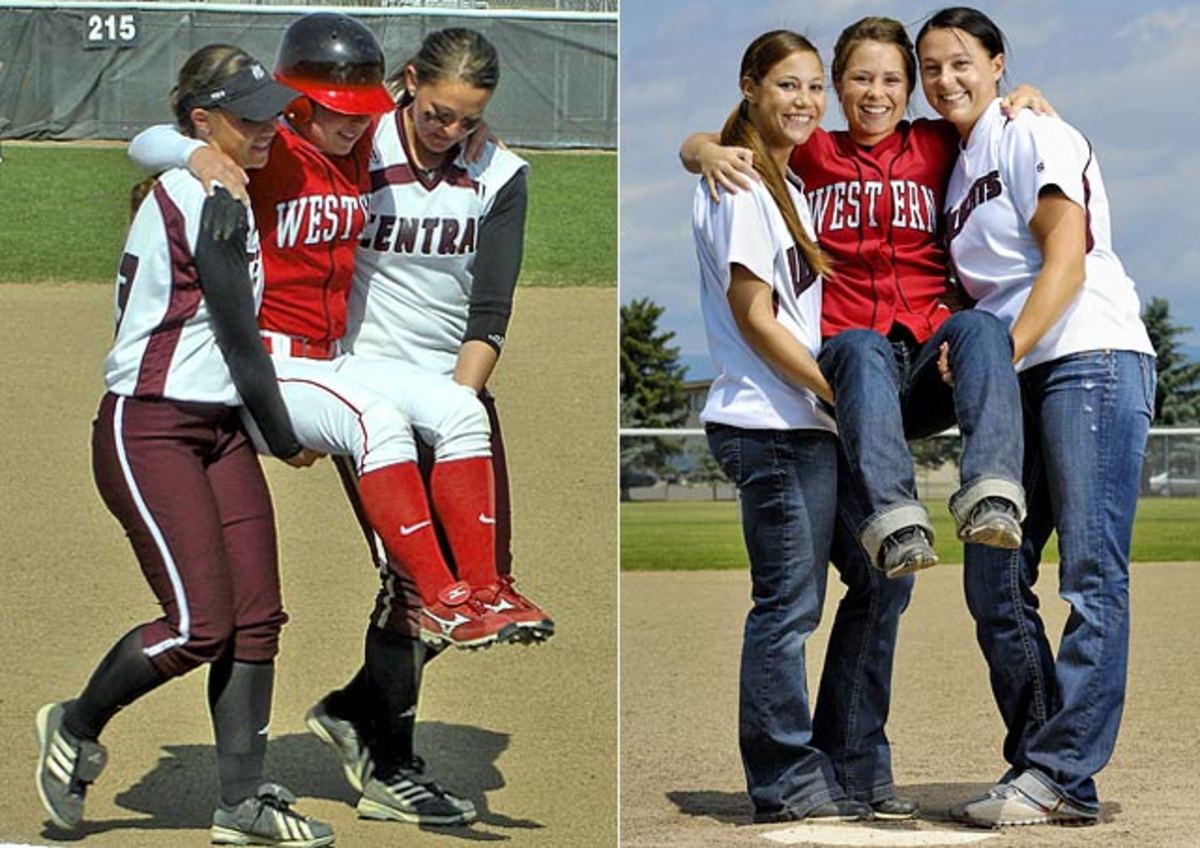
Sarah Tucholsky, then a senior at Western Oregon University, had just hit her first collegiate home run when she blew out her knee rounding first. She would be unable to circle the bases, and rules stipulated that when she came out of the game for a pinch runner she would be credited with only a single. Then a curious thing happened, as Mallory Holtman, the first baseman for the opposing Central Washington Wildcats came to the aid of Tucholsky and helped carry her to home plate. Sports may never see a greater act of sportsmanship.
Miracle on Ice
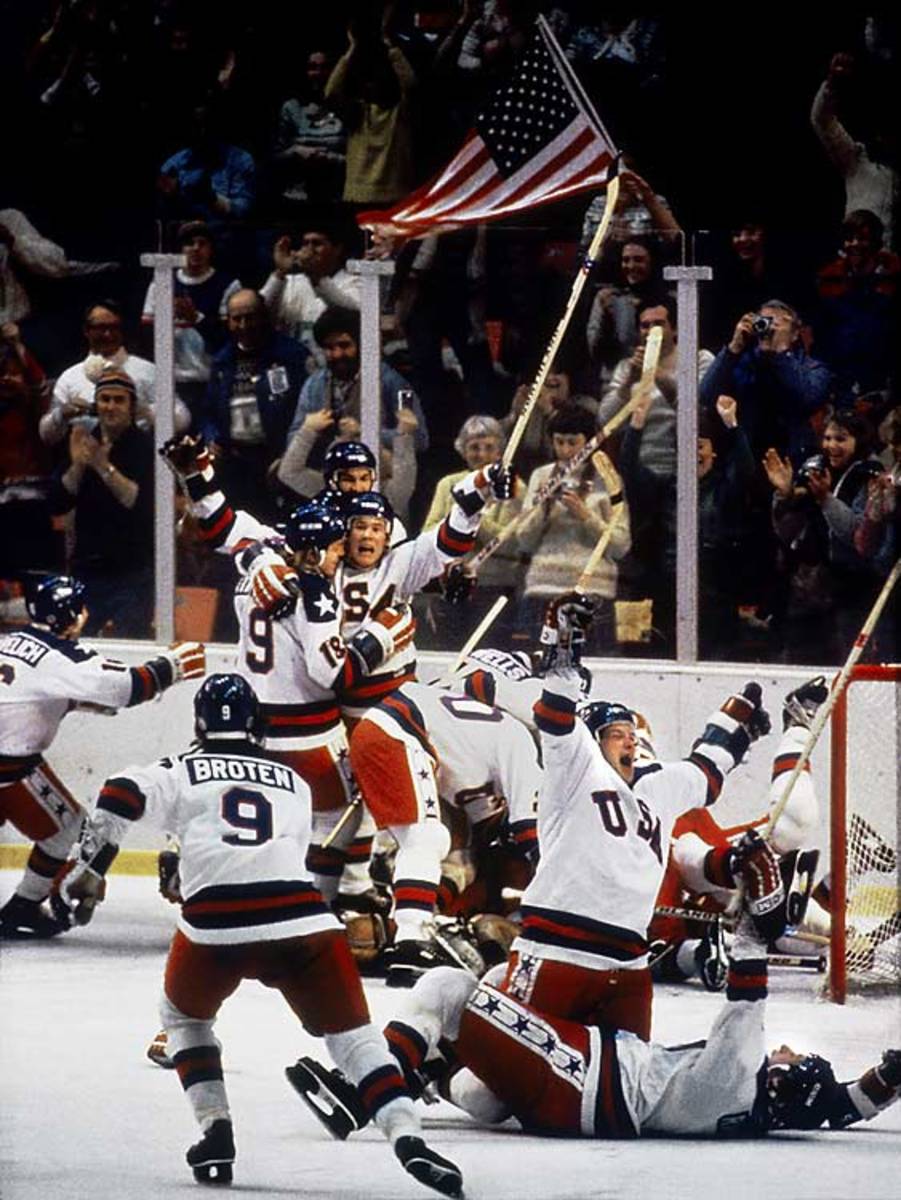
Contrary to popular lore, the U.S. hockey team, which consisted of amateur and collegiate players, did not win the gold medal when it defeated the Soviets, who were considered the best hockey team in the world. The Yanks went on to defeat Finland for the gold in the championship match later, but against the backdrop of a defrosting Cold War, the U.S.-Soviet match was one for the ages.
John McDonald
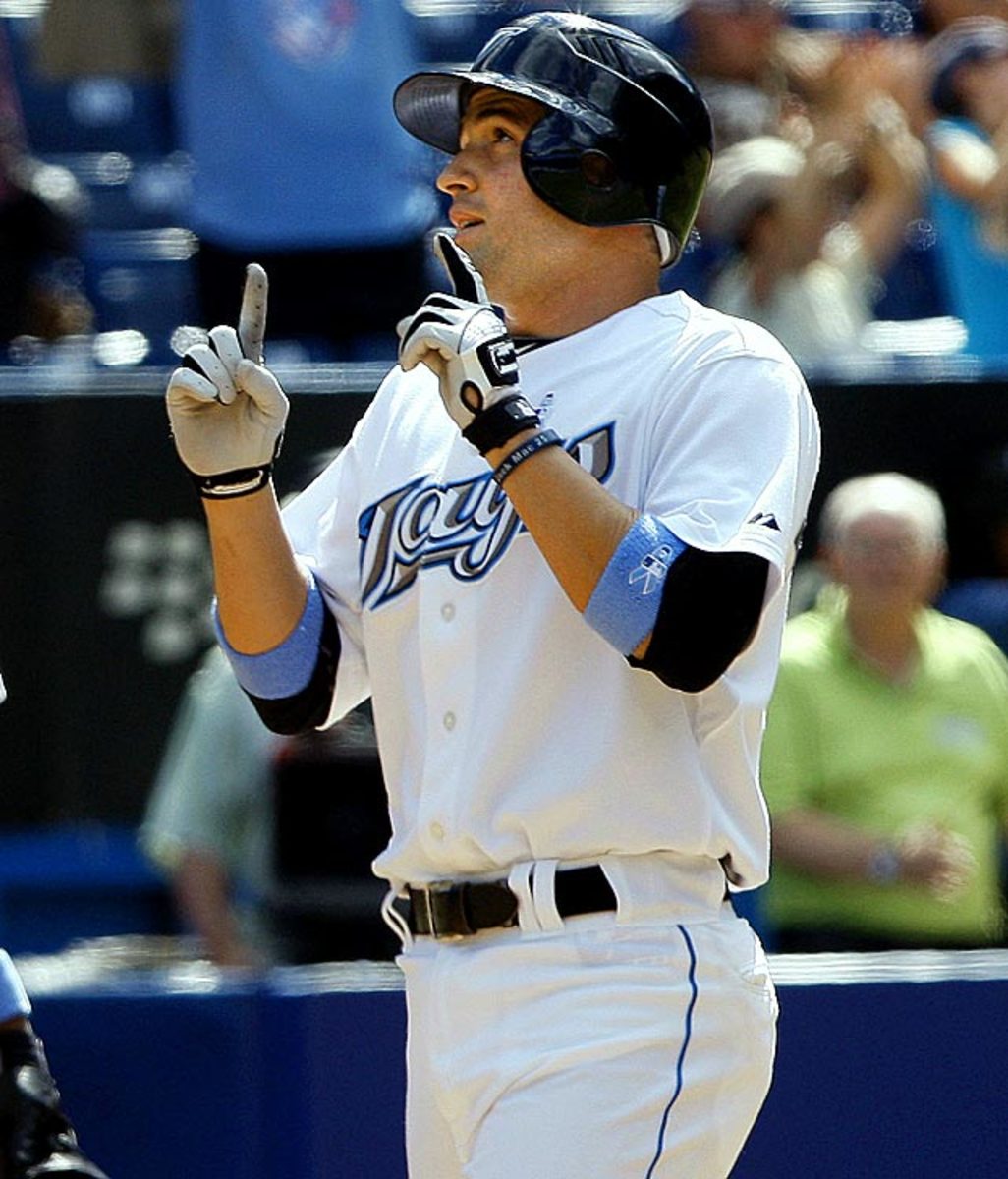
Before Toronto Blue Jay John McDonald's father died, he asked his son to hit his next home run in his honor. So when McDonald stepped up to the plate for the Jays two days after his father died, and on Father's Day no less, he was swinging for the fences. When the ball cleared the left field fence, it was an emotional moment for McDonald, who honored his father by pointing toward the sky as he crossed home plate.
Kerri Strug

Ignoring the pain of an ankle injury suffered on her first vault , Kerri Strug approached her second attempt knowing the U.S. hopes for a gold medal rested on her performance. She jumped the vault again and landed, instantly shifting to her good foot. Two feet or not, her heroics were enough to net the U.S. a gold.
Maurice Cheeks
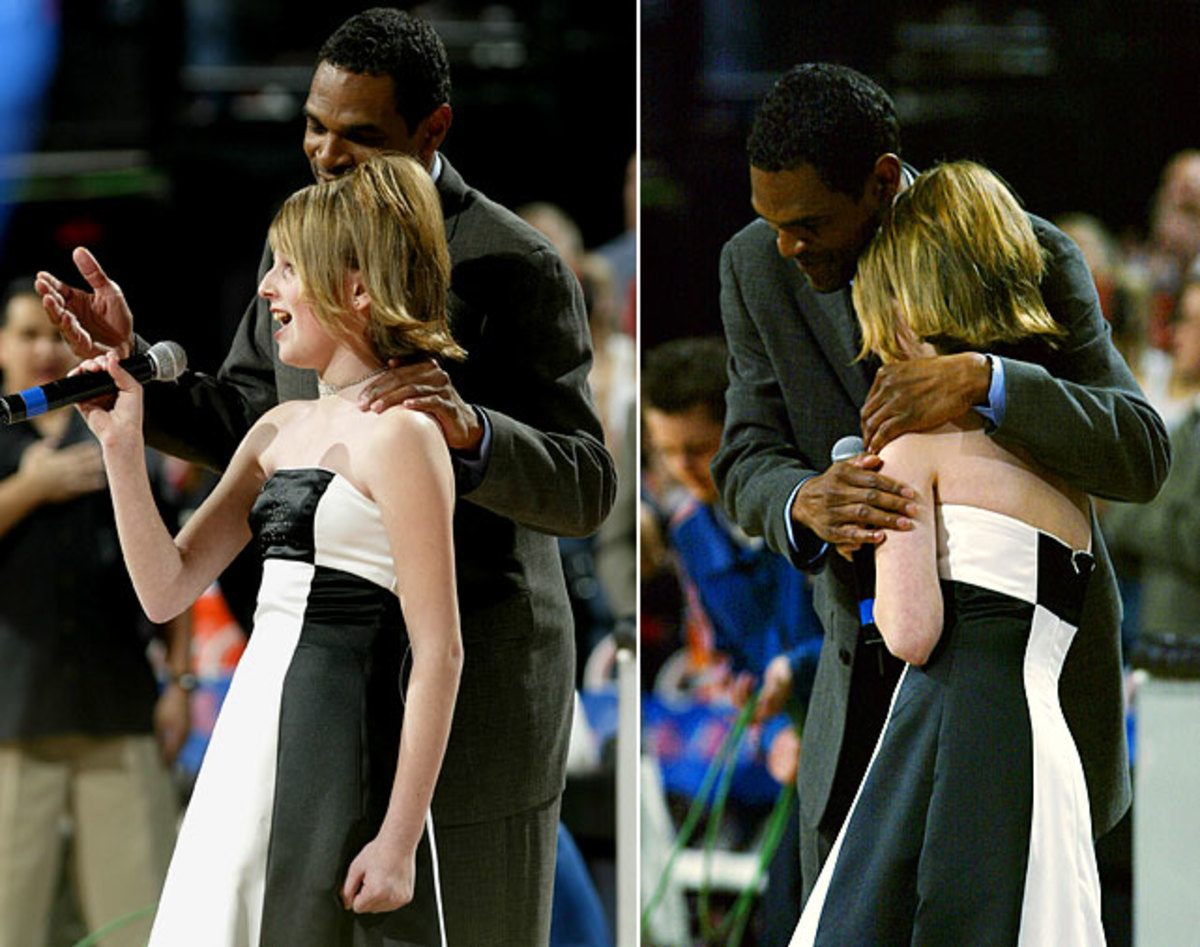
Natalie Gilbert's shining moment came when she was asked to sing the national anthem before a Trail Blazers game in April 2003. Midway through the anthem however, Gilbert struggled to remember the words. Luckily, then-Blazers coach Maurice Cheeks came to the rescue, lending a comforting hand and the remaining verses to "The Star-Spangled Banner."
Lou Gehrig
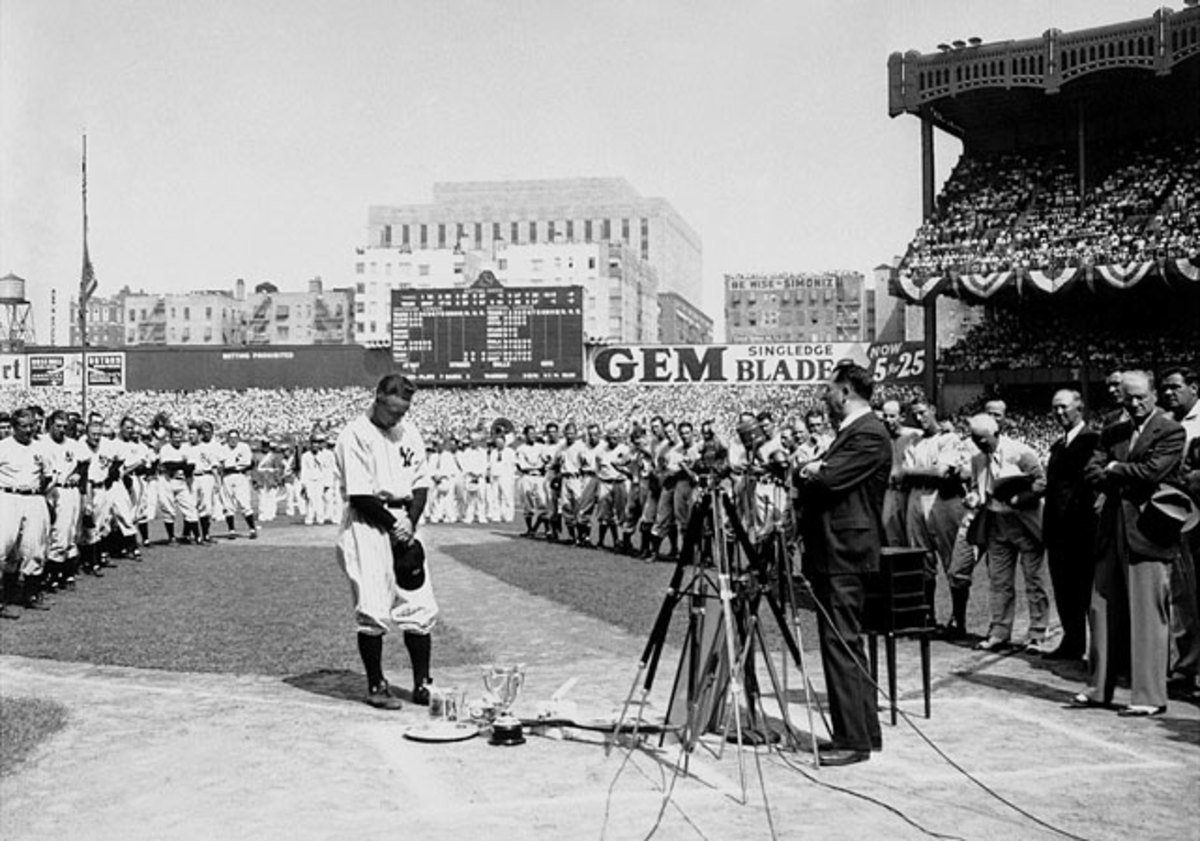
Widely regarded as the most famous farewell speech of all time, Lou Gehrig said goodbye to baseball not by lamenting his unfortunate situation, but rather by taking the high road. "I've been given a bad break," he concluded, "but I've got an awful lot to live for." The modern retiring athlete could learn a lot from the "Iron Horse."
Derek Redmond

Derek Redmond's sprinting career was beset by injuries, the most well known occurring during the 1992 Olympic games in Barcelona. In the 400 meters semifinal, Redmond tore his hamstring, but was determined to finish the race. As Redmon hobbled toward the finish line, his father joined him on the track and helped him finish the race.
Dallas Braden
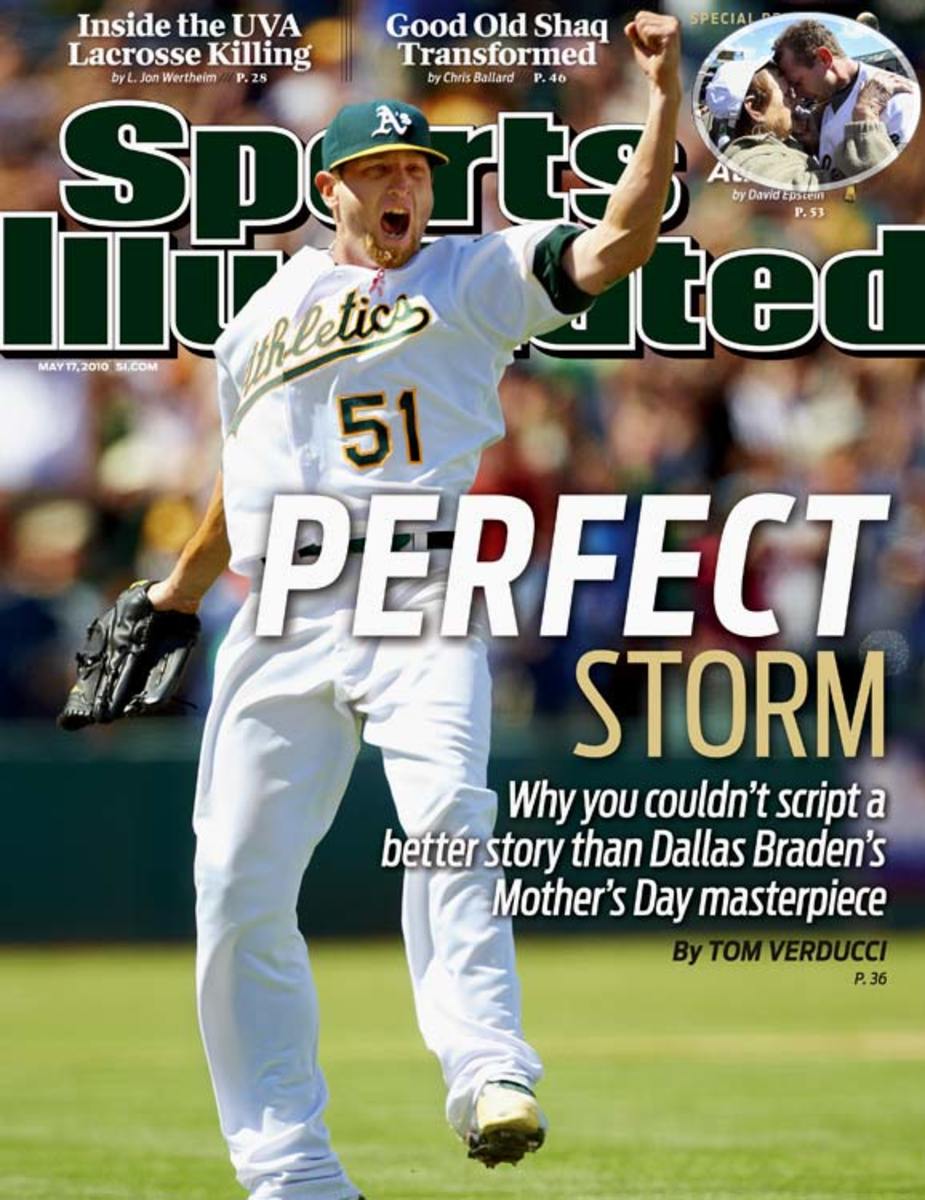
The youngest pitcher to throw a perfect game since Mike Witt in 1984, Dallas Braden did so on May 9, 2010, Mother's Day. Braden's mother had died of cancer when he was in high school, but his grandmother, who had raised him after his mother's death, was in attendance for his flawless performance. After the game, Braden found his grandmother and the two embraced. Her first words were, "Your mom would have been so proud."
Dan Jansen
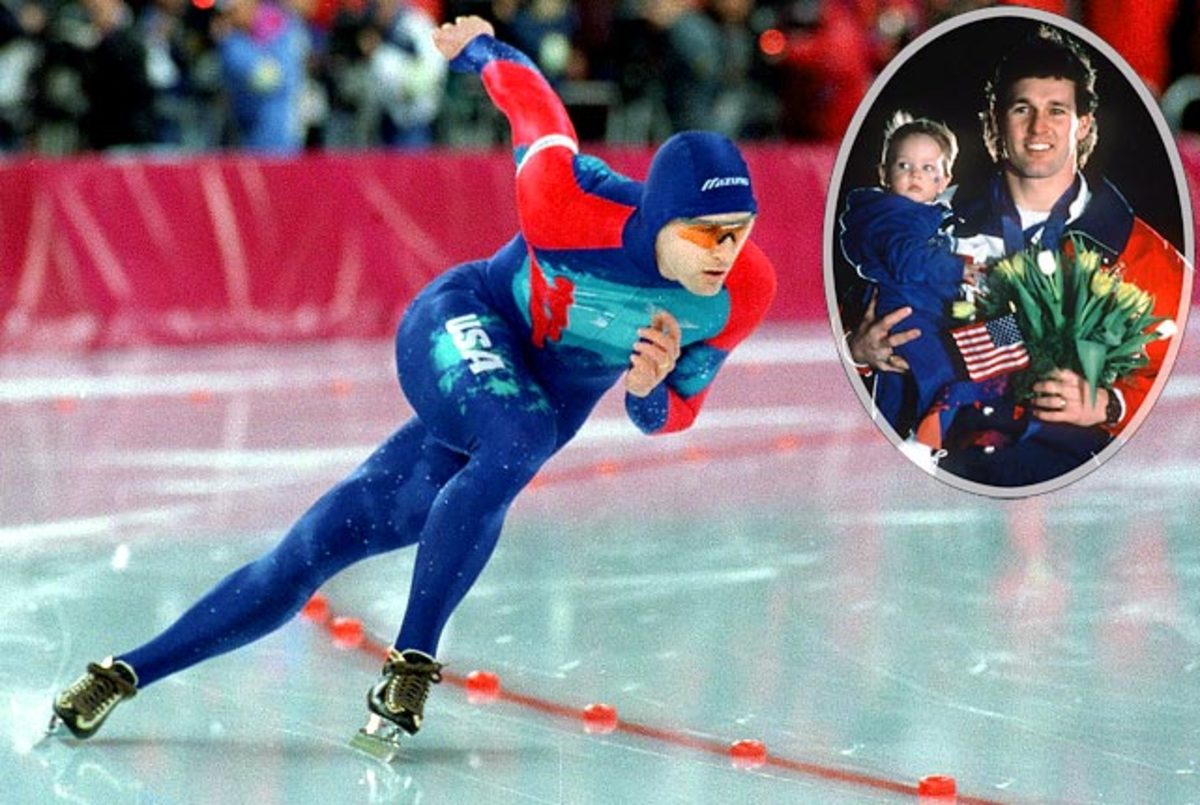
After years of heartbreak, in 1994 Dan Jansen finally won his much-coveted gold medal. Considered the best speed skater in the world, Jansen was thought by many to be cursed after the misfortune that befell him before he won his medal. In 1988 Jansen's sister died of leukemia the day of his races, and unable to focus, Jansen fell in both. In 1992 Jansen again fell, dashing his medal hopes once more. Finally in 1994, after falling in an earlier race, Jansen blew away the field to win the gold medal and prove that hope should never be abandoned. He skated a victory lap with his daughter, Jane, named for his late sister.
Chris Paul
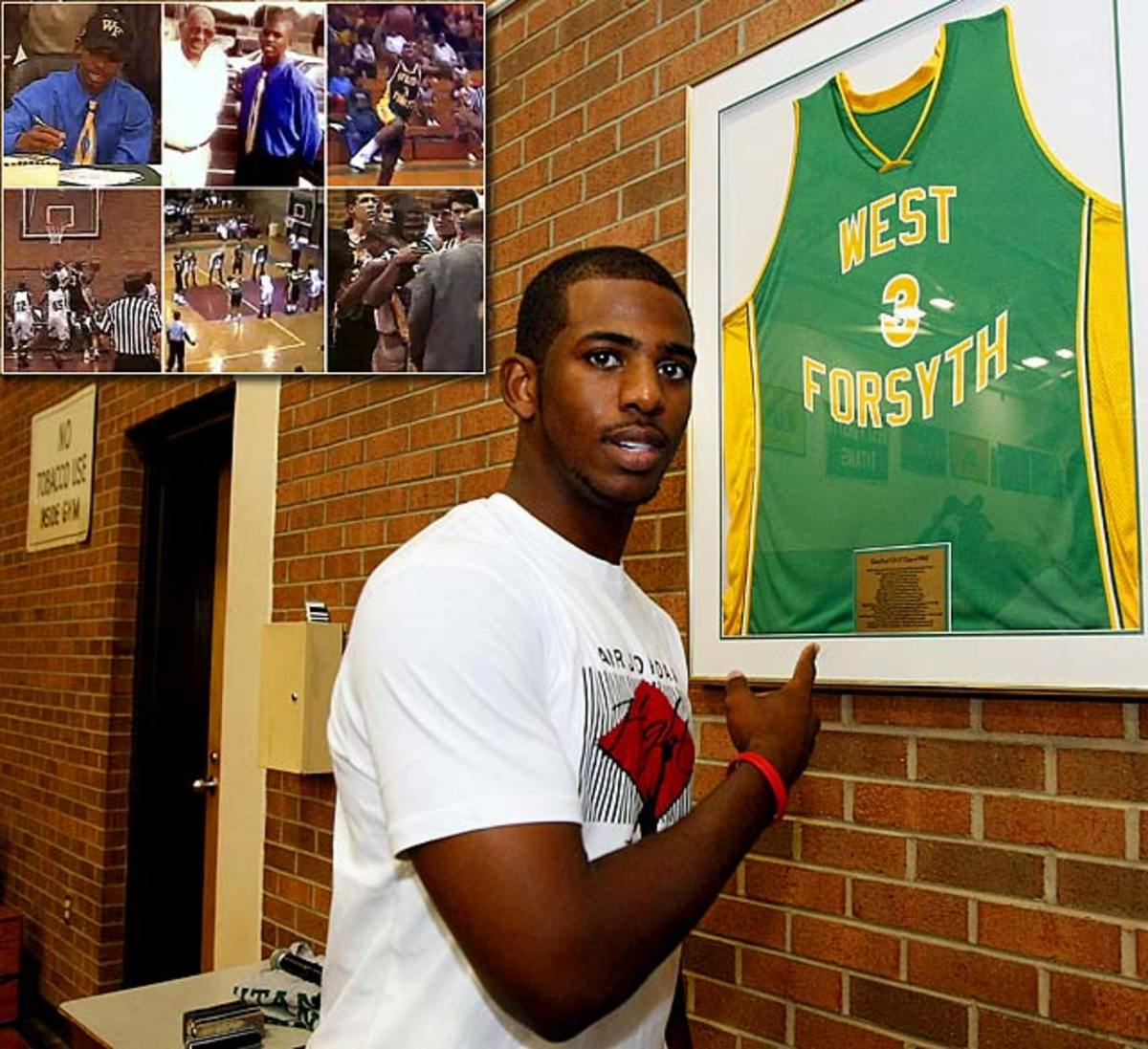
A day after accepting a full scholarship to Wake Forest, Chris Paul learned his beloved grandfather, Papa Chilly, was beaten to death by five juveniles. To honor his late grandfather, Paul planned to score 61 points, one for every year of his grandfather's life. Late in the next game, Paul scored his 61st point and was fouled. Paul intentionally missed the free throw, then walked over to the bench and collapsed into his parents' arms.
Kevin Everett
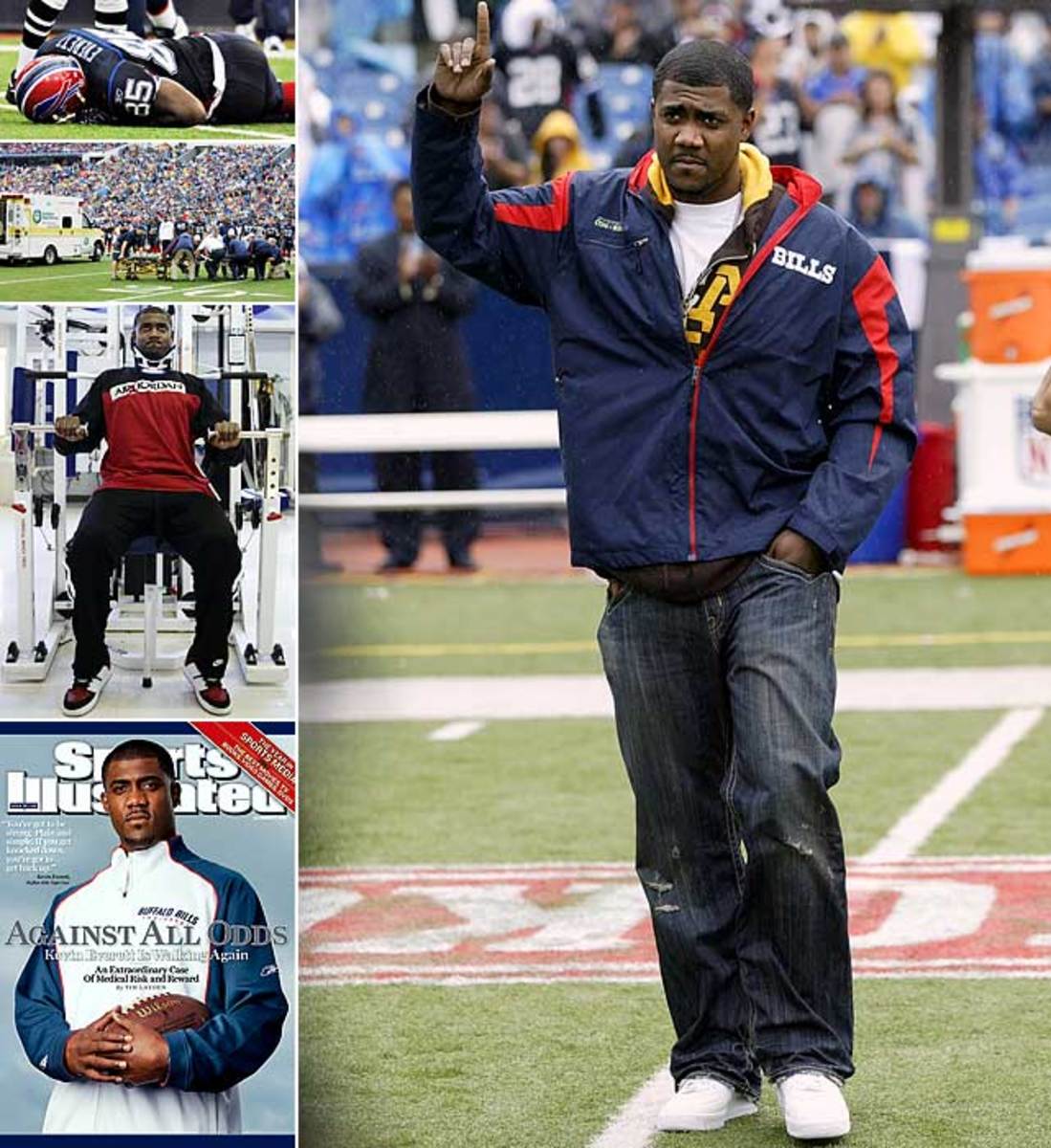
Kevin Everett struggled with injuries from the moment he entered the National Football League. He missed all of 2005 after suffering a torn knee ligament on the first day of minicamp and played sparingly in 2006. In Week 1 of 2007, Everett was again injured in a horrific helmet-to-helmet injury sustained while trying to tackle Domenik Hixon. Doctors characterized Everett's injury as life threatening, and predicted he may never walk again. But on Dec. 23, 2007, Everett walked on to the field for the Bills' home finale.
Saints Super Bowl
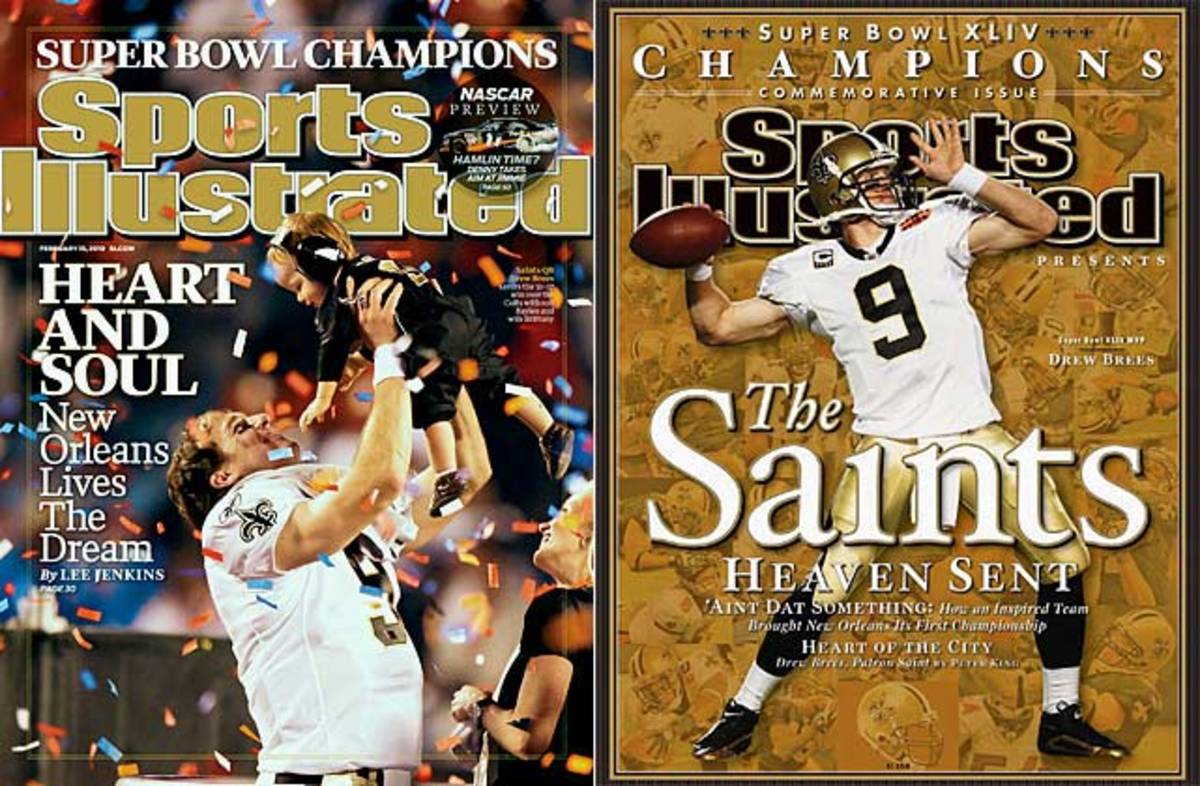
When Hurricane Katrina damaged the Superdome roof in 2005, the New Orleans Saints were forced to split their home games between the San Antonio Alamodome and LSU's Tiger Stadium. During this season, there were rumors that San Antonio officials were maneuvering to permanently relocate the Saints to the city. Five years later, the Saints were still in New Orleans, and dubbed "America's Team," for bringing a championship to the still storm-ravaged city.
